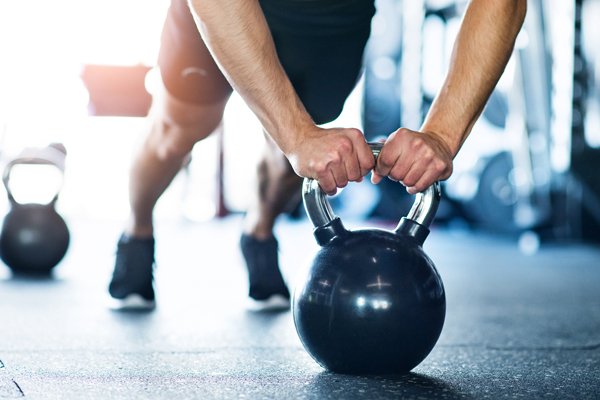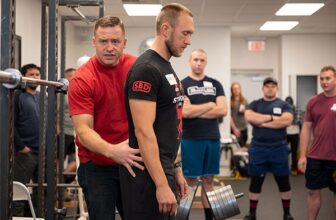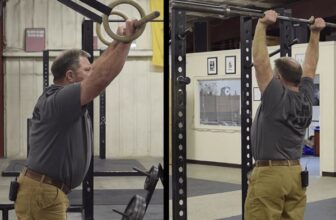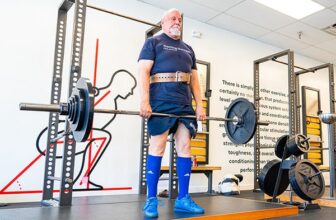Cardio before weights, or weights before cardio?
Everyone seems to have a different answer: Your friend swears by doing her cardio workout before hitting the free weights.
Your brother says it’s better to do strength training first and then crush your cardio.
So how can you decide, once and for all, whether it’s better to do cardio before or after your workout?
The short answer: It depends on your fitness goals. Read on to find the best workout order for your get-fit plans.
Is It Better to Do Cardio Before or After a Strength Workout?
Just like there isn’t one answer to “what is the best workout to do,” the question of whether to do cardio before or after a strength-training workout doesn’t have one clear-cut answer that applies to everyone.
Both cardio-first and strength-first methods can provide healthy benefits — just slightly different benefits.
So while there’s no one-size-fits-all answer, there’s a strategy that will work best for you.
Whether your main fitness goal is to drop pounds, build muscle, or help your heart, here’s how to decide whether to do cardio before or after your strength workout.
The Benefits of Doing Cardio First
If you prefer to start with a 30-minute run or a workout on the rowing machine, you’ll be able to take advantage of these cardio-first benefits.
1. Stronger cardio
No surprise here: When you start your cardio with fresh legs, your cardio workout will feel easier, and you’ll likely go faster and longer than if you wait until after a tough strength-training workout.
One study found that a single resistance-training session before cardio endurance training can impact muscle soreness, running gait, and glycogen levels (a quick source of fuel for your body during a workout).
2. Better endurance
If increasing endurance is one of your key fitness goals, doing cardio first will help build better cardiovascular health and improve the duration of your workouts.
A study in the Journal of Human Kinetics found that the endurance performance of participants was decreased when strength-training exercises were completed first.
If cardio is your main focus — for example, you want to boost your heart health or train for a triathlon — get it done first, before you’re fatigued.
The Benefits of Strength Training First
If you prefer squats and dumbbell presses, starting with strength training has its own benefits.
1. Faster gains and improved strength
If your goal is to build muscle mass, then you’ll want strength training (along with adequate protein consumption) to be your first priority.
“If you strictly want to build muscle, you’ll want to lift the most weight possible during a workout,” says Lynn Montoya, an ACE-certified personal trainer and health coach.
Doing cardio first can deplete glycogen stores, Montoya says, which can lead to muscle fatigue and decrease your muscle power.
Translation: less energy to lift heavy.
Even if you’re not looking to build Hulk-sized muscles, making strength training your first priority will — go figure — increase your muscle strength and power faster than doing cardio first.
A 2015 study found that doing aerobic exercise (a form of cardio) before lifting weights led to fewer completed reps.
And a 2016 study found that when cardio was performed before resistance training, the participants demonstrated a decrease in muscular power and an increase in perceived exertion.
2. More effective weight loss (maybe)
There’s no cut-and-dry evidence that cardio-before-strength or strength-before-cardio will help you shed more pounds.
But “strength first” may have slight edge.
A 2015 study compared the fat-loss effects of an 8-week trial of each training order in a group of 30 obese men.
The results? While performing strength training first was slightly more effective, both groups had significant decreases in body mass, body fat, and body mass index (BMI).
Which Should You Do First — Cardio or Strength?
Bottom line: Both cardio and strength training can burn calories, improve your overall health, and help you lose weight.
So whether you prefer to do cardio before or after strength, you’re still going to get a great workout.
It’s true that doing cardio first may fatigue your muscles, and doing strength first may affect your endurance afterward.
But unless you’re training for a super-specific goal, your training order ultimately shouldn’t make or break your results.
“For the general population who are just trying to get fitter, more conditioned, or improve body composition, it really doesn’t matter whether you do cardio first or strength training,” says Kurt A. Escobar, Ph.D., an Assistant Professor of Exercise Physiology at California State University, Long Beach and an NSCA-certified strength and conditioning specialist. “It just comes down to preference.”
One easy way to navigate the cardio-or-strength-first debate? Do cardio and strength training on different days altogether.
While this may mean more total days working out, you’ll also be able to give 100% to each workout without worrying about fatigued muscles, decreased endurance, or one workout sabotaging (even in a small way) the other.
Why You Shouldn’t Skip Your Warm-Up
Whether you choose to do cardio first or strength first, it’s important to start your workout with an active warm-up — like an easy jog or a few minutes of dynamic stretching.
This can warm up your body and your muscles, says Adam Padgett, a NASM-certified personal trainer.
And research suggests a brief warm-up — around 5 to 15 minutes — can get your heart pumping and reduce the risk of injury.









